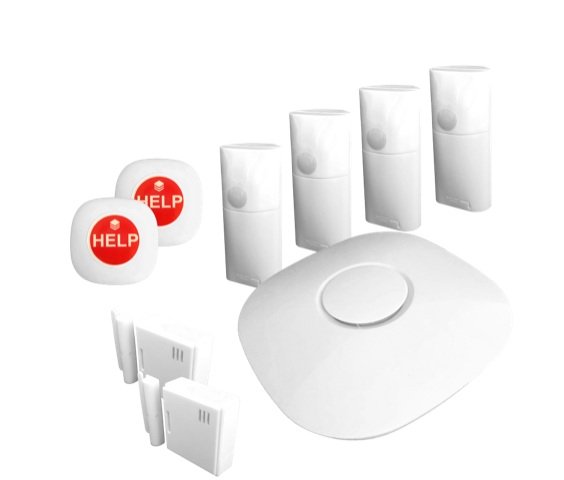StackCare
Worried About Your Loved One's Safety?
If you're unsure whether your mom needs a caregiver but are concerned about her well-being when you're not around, motion sensors might be the solution. These discreet, unobtrusive devices offer a dignified way to maintain independence while ensuring peace of mind.
Most motion sensor systems learn activity patterns over time, tracking trends to identify any abnormal changes. If there's a significant deviation from the norm, you'll receive timely alerts. This can help you proactively address potential issues before they escalate.
Variety of Motion Sensors
I've tested a variety of motion sensors, each with its own quirks. Some were too sensitive, while others were not consistently accurate. A few years ago, I tested a system backed by a couple of industry giants. I received a constant barrage of alerts, even when there was no apparent movement. Their suggested culprits? Curtains (I don't have any) and wind (seriously?).
Recently, I tested another system that was sporadic at best. After reporting the inconsistencies and sending in requested screenshots to the engineers two different times, they couldn't figure out the issue and did not follow up with me. The lack of follow-up speaks volumes about their customer service.
Game-changer for Aging in Place
By detecting changes in activity patterns, they can help families anticipate the need for caregiving. This data can optimize care schedules and budgets.
For example:
Predicting Care Needs: By identifying early signs of decline, sensors can help families anticipate the need for additional care, preventing crises and allowing for proactive planning.
Optimizing Care Hours: If sensors show that an older adult is less active during certain hours, it might be possible to adjust caregiver schedules accordingly, reducing unnecessary costs.
Identifying Safety Concerns: Sensors can detect potential hazards like falls or wandering or even UTI’s, allowing caregivers to address them promptly and reduce the risk of injuries.
Peace of Mind: Knowing that a loved one is being discretely monitored can provide families with peace of mind, potentially reducing the need for frequent check-ins or even relocation to a higher-level care facility.
StackCare
StackCare uses discreet motion sensors and artificial intelligence to learn individual behavior and activity patterns, sending notifications directly to your phone. You get to see at a glance, simply and easily, if your loved one is sleeping ok, is visiting the bathroom too often, and whether his/her activity patterns have changed.
Of the systems I've tested, StackCare stands out as a clear winner. It offers reliable 24/7 monitoring, leveraging advanced AI technology to detect potential falls and health issues.
The StackCare app is packed with valuable insights and data, and it's fully customizable to your specific needs. I love the ability to set alerts for lack of motion. For example, if you've created a "Zero Activity" alert and your mom goes shopping, you'll receive a notification if she's been gone for an unusually long time.
The app's intuitive charts are color-coded for easy understanding. Plus, it even monitors indoor temperature to ensure your loved one's comfort. Family members receive timely alerts for potential issues, ensuring prompt assistance. Each family member can customize their notifications or turn them off completely.
The app is compatible with both Android and iOS devices. And you'll receive a daily update confirming that everything is okay, so there's no need to constantly check the app.
StackCare is unobtrusive and backed by exceptional customer support. It's a truly reliable solution for peace of mind in remote caregiving.
Costs
WiFi-enabled $95.00/mo (Use code AGETECH for 10% discount)
LTE-enabled $119.00/mo (Use code AGETECH for 10% discount)








